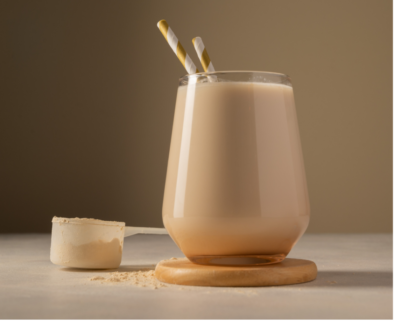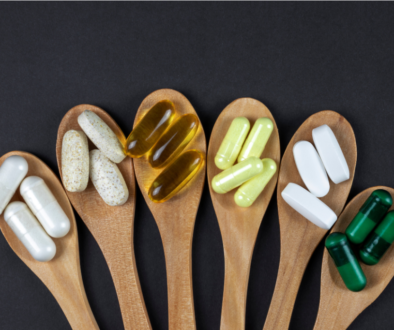Kapha Balancing Foods
Kapha is one of the three Ayurvedic Doshas, or constitutions. The Kapha season is late Winter through early Spring (depending on where you’re at in the world). If you’re experiencing an imbalance of Kapha Dosha, or you want to eat for the season, here are some tips for you.
In general, favor bitter, pungent (spicy), and astringent foods. Limit sweet, sour (including fermented), and salty foods. Eat at the same time every day. Dinner should be a light meal no later than 7pm. Favor foods that are light, dry, and warming. Avoid snack and overeating.
Grains
- Favor corn, millet, rye, buckwheat, and popped grains (popcorn, rice cakes), teff, barley, couscous, oat bran, dry oats, quinoa, tapioca, amaranth*, rice (basmati)*,
- Avoid wheat, oats (cooked), rice (white and brown), pasta, spelt, white flour
- Toast bread
Fruit
- Favor apples, apricots, berries, cherries, dried figs, mango, peaches, pears, cranberries, pomegranates, persimmon, strawberries*, green papaya*, and dried fruit
- Limit or avoid pineapples, oranges, melons, avocado, coconut, dates, fresh figs, grapefruit, grapes, kiwi, mangos, papaya, plum, rhubarb, bananas
Vegetables
- Kaphas benefit from most vegetables including arugula, asparagus, beet greens, beets, bell peppers, bok choy, brussel sprouts, burdock root, broccoli, cabbage, carrots, cauliflower, collard greens, corn, daikon root, mushrooms, celery, kale, green beans, eggplant, sprouts, turnips, horseradish, Jerusalem artichokes, jicama, leafy greens, leeks, lettuce, okra, onions, peas, peppers, white potatoes, radish, sprouts, sundried tomatoes, watercress
- Limit or avoid avocado, acorn squash, artichoke, cucumber, olives, parsnips*, sweet potatoes, pumpkin, rutabaga, spaghetti squash, tomatoes, winter squash (pumpkin, acorn, butternut, delicate, spaghetti, kabocha, red kuri), zucchini
Legumes
- Favor mung, adzuki, black, and pinto, navy, lima, and white beans, red and yellow lentils, black-eye peas, chick peas, split peas, tempeh, and cooked tofu
- Avoid black and brown lentils, kidney beans, soy beans, soy milk, cold tofu
Nuts and Seeds
- Favor pumpkin*, sunflower, flax and almonds
- Avoid brazil nuts, cashews, macadamia, coconut, almonds, sesame, peanuts, pecans, pine nuts, pistachios, walnuts, sesame, hemp
Dairy
- Avoid dairy
- Avoid hemp and rice milk
- Favor almond, soy milk
Oils and Fats
- Kaphas require less oil overall
- Favor sunflower, almond, mustard, flax, grapeseed, olive
- Ghee, sesame in moderation
- Avoid apricot, avocado, coconut, safflower, sunflower, butter, walnut, hemp oil
Seasonings, Herbs, Spices
- Favor all spices, especially pungent spices such as garlic, ginger, cumin, black pepper, cloves, turmeric, cayenne, parsley, fennel
- Limit salt
- Avoid vinegar, relish, tamarind, almond extract
Sweeteners
- Favor raw honey, rice syrup, maple syrup*
- Avoid white sugar, brown rice syrup, jaggery, molasses,
- Use sweeteners in small quantities
Beverages
- Favor ginger tea, chai tea, chamomile tea, jasmine tea
- Black tea in moderation
- Wine is ok
- Avoid soy milk, alcohol in excess, smoothies, carbonated drinks, coconut, ice-cold drinks, dairy drinks
Meats
- Kapha requires the least meat
- White meat, poultry, eggs*, and freshwater fish are better choices. However, Ayurveda does not recommend consuming meat for anyone because it’s difficult to digest (physically and mentally)
- Avoid beef, pork, chicken and turkey (dark), lamb, seafood, and saltwater fish
- Avoid frying or sautéing
Condiments
- Avoid grated cheese, ketchup, mayonnaise, pickles, soy sauce, tamari
- Favor nutritional yeast
*Ok in small amounts.
Alicia Cross is a Certified Personal Trainer, Accountability Coach, and Yoga Teacher with more than 19 years’ experience working with clients just like you. If you have questions, email Alicia@AliciaCrossTraining.com.
As an Amazon Associate I earn from qualifying purchases.
Related Posts:
Ayurveda: The Science of Living Well



